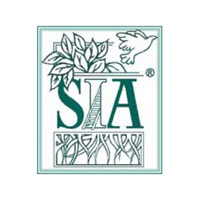They are a spiritual, self-help program of women and men, 18 years or older, who are guided by a set of 12 Suggested Steps and 12 Traditions, along with their Slogans and the Serenity Prayer. They define incest very broadly as a sexual encounter initiated by a family member or by an extended family member that damaged the child. By “extended family” they mean an aunt, uncle, in-law, stepparent, cousin, friend of the family, teacher, coach, another child, clergy or anyone that that betrayed the child’s trust. There are no dues or fees in their meetings. If you feel that you belong, they believe you.
Their program is peer support. All literature is written by fellow survivors. They share their experience, strength, and hope from working our 12 Step program of healing. They do not have any professional therapists working in their groups. SIA is not a replacement for therapy or any other professional service when needed.
Their website includes the following features.
- Explanations of the group – its background, principles and methods
- Meeting List (In Person, Telephone and Online)
- Blog
- Organization Information
- Online Store
One January evening in 1982, at a kitchen table in Baltimore, three women sat together and spoke about the unspeakable: childhood sexual abuse, perpetrated by family members (father, mother, brother-in-law) on each woman decades before. Using the Alcoholics Anonymous 12-Step recovery model, they admitted to being powerless over their histories, asked for help from a Higher Power so that they might make peace with their past and began to heal and thrive in the present. They began casting off shame and self-blame, living their lives unencumbered by the legacy of abuse. That evening, a new mutual-help, 12-Step program was born: Survivors of Incest Anonymous.
Now — in houses of worship, medical centers and other meeting places located around the country and in a dozen foreign countries — women and men 18 years through their 70s and beyond sit together and speak about the unspeakable: their own reality of childhood sexual abuse. Guided by the 12 suggested Steps of the program, everything said in the meetings and member to member is held in strict confidence. Survivors facilitate the groups; mental health professionals do not work in the meetings, and SIA is not intended to replace therapy or any other professional service when needed.
There is no typical SIA member profile; members are of all racial, ethnic, religious and political backgrounds, with varying marital statuses, sexual orientations, and degrees of ability/disability. The abusers in their lives may be any family member, family friends, clergy, another child or teenager, or anyone who betrayed the child victim’s innocence and trust. We define incest very broadly. Many of those who attend SIA meetings share their struggles with explosive anger, depression, addictions and compulsions, perfectionism, isolation, thoughts of suicide, and troubled relationships with family, spouses/partners, and authority figures. In SIA, we find hope and healing with self-confidence and self-esteem.

